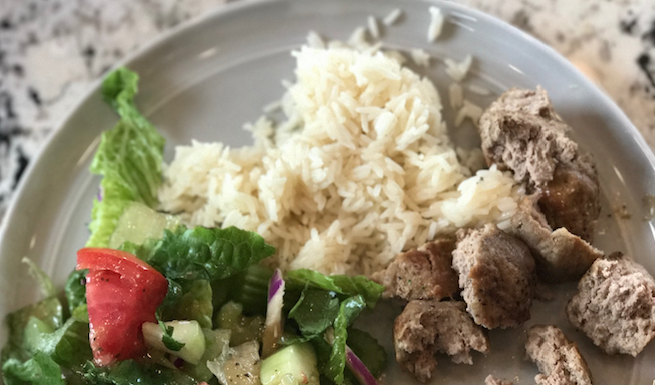
What is Intermittent Fasting and What Supplements Can I Take While Practicing?
Let’s not be coy, dieting is no walk in the park. It isn’t all that fun either, whether it be for a contest or just to achieve a certain fitness goal. Nutritionists, dieticians, and coaches alike have spent decades researching ways to minimize the dread of dieting and have all seemingly come up with a similar technique. The Warrior Diet, the Alternate-Day Diet and more all share the similar concept of intermittent fasting.
Intermittent fasting is a strategy taking the fitness world by storm and for good reason. Studies suggest fulfilling all of one’s caloric needs in a short period of time can be a powerful tool in achieving the “ideal” physique.
There are many ways to incorporate intermittent fasting into a nutritional regime, the most popular being the 16/8 method: fasting for 16 hours of the day and consuming all of one’s calories in the remaining 8.
For years, IF was thought to be bodybuilding sacrilege, but it actually can be used as an effective weapon to combat catabolism. Anecdotal research conducted during Ramadan found that men lost no muscle mass while intermittent fasting. In fact, the subjects lost a significant amount of body fat while practicing IF.
Further studies have proven this principle to be effective in minimizing insulin and blood glucose levels, limiting negative by-products of digestion, and decreasing LDL cholesterol (the bad kind) while increasing HDL cholesterol (the good kind).
Another interesting effect of intermitted fasting is increased red blood cell count and hemoglobin levels. Hemoglobin is the protein in RBC’s that carries oxygen through the bloodstream to the muscles. This is a common goal amongst endurance athletes like cyclists. Maybe Lance Armstrong would not have gotten caught for “doping” had he just tried a natural intermittent fasting diet!
Most importantly, however, fasting “flicks the switch” on genes that lead to certain uncoupling proteins and activate fat burning enzymes. Uncoupling proteins break down mitochondrial walls inside muscle cells. ATP, the body’s primary source of energy, is created in the mitochondria. Penetrating the walls of the mitochondria halts the production of energy, therefore eliciting the use of more calories to produce the same amount of energy. In other words, fasting burns calories and fat at an accelerated rate. Interestingly enough, your metabolism will speed up even more once the fast is finally broken!
Now that we have established what intermittent fasting is, what supplements, if any, are safe under this principle? The short answer is most supplements can be added to an IF routine. Knowing what we know about IF, however, that answer is contingent on timing. Keeping all the aforementioned information in mind, that question is also dependent on whether the supplements will interfere with one’s goals. Let’s take a look at certain product categories and their effects on an IF diet.
Whey Protein: Whey protein powder has been a staple of an athlete’s nutritional program for decades. Consuming a whey protein powder has been found to elicit many positive effects from increasing muscle mass and fat burning. Ingesting a protein powder like Isotope is a tasty and easy way to ingest calories during the fed hours!
Branch Chained Amino Acids: Some coaches recommend their clients sip on a BCAA supplement during their fasting period to better preserve muscle and maintain adequate energy levels. Whereas this advice would certainly do the trick, it is technically putting you in a fed state. Let’s think about this from a biological standpoint. Amino acids are the building blocks of proteins. Proteins are macronutrients and act as fuel for the body, taking one out of a fasted state. During the fed hours, however, all bets are off! I encourage the use of a BCAA like Breach that contains a hefty amount of essential amino acids, coconut powder, and electrolytes!
Pre-Workouts, Nitric Oxide Boosters, and Fat Burners: Working in a caloric deficit drains energy levels to empty, as well as making it almost impossible to get a pump in the gym. Pre-workout powders, nitric oxide boosters, and fat burners can prove to be the holy trinity to the IF practicing athlete. Stacking Big Noise with Total War will give you the skin splitting pumps you seek while fueling energy levels to maximum capacity! Add Double Tap to your regime for an increased rate of fat oxidation, just make sure it’s ingested within the fed hours.
As you can see, supplements are totally safe on an intermittent fasting diet. Like any other weight loss regime, the most important factor is timing. If ingested during fed hours, supplements can bring the heavy artillery in the war against fat.


















